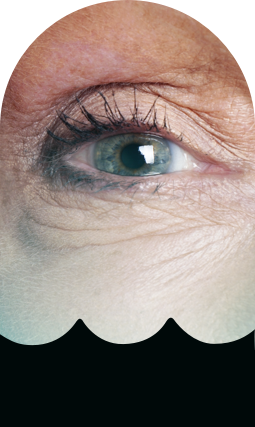Macular degeneration is the deterioration of the macula, the small central area of the eye that controls visual acuity. Typically developing macular degeneration is a slow, painless vision loss.
Age-related macular degeneration (AMD)
Macular degeneration is often referred to as age-related macular degeneration because it most frequently occurs in older generations. Macular degeneration is the leading cause of vision loss among older Americans and will grow significantly in the years to come due to the aging of the US population.
Populations Affected
The prevalence of macular degeneration increases significantly in individuals over the age of 80. In particular, the white American population is affected the most, with 14% of white Americans age 80 and older affected by AMD.* Women also have a higher occurrence of AMD as compared to men due to their longer life expectancy. In 2010, 65% of AMD cases occurred in women as compared to only 35% in men.*
Risk factors
- Obesity: Overweight patients with macular degeneration double their risk of developing advanced forms of macular degeneration.
- Inactivity: Those who perform vigorous activity three times weekly reduce their risk for developing AMD compared to inactive patients.
- Heredity: Family history and specific genes can link to a high risk of developing AMD.
- High blood pressure: Some studies show a link between high blood pressure and macular degeneration.
- Smoking: Living with a smoker doubles your risk for developing AMD. Smoking is a factor in about 25% of AMD cases with severe vision loss.
Currently, the best way to protect your eyes from developing macular degeneration is to eat healthy, exercise, and wear sunglasses. Annual eye exams can detect the early onset of macular degeneration and help to preserve your vision. Schedule an appointment with our office today!
*National Eye Institute, 2010


















